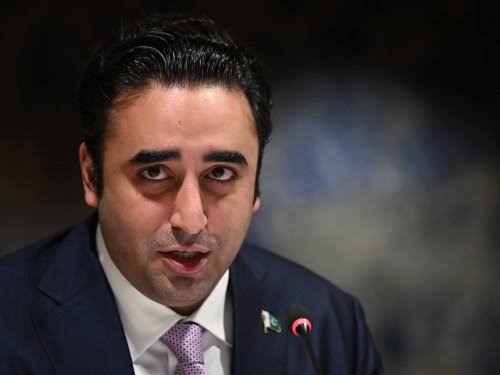The former administration of Prime Minister Imran Khan has been accused of taking the “wrong attitude” toward the militant group Pakistan Taliban, according to Pakistan’s Foreign Minister Bilawal Bhutto Zardari (Tahreek-e-Taliban, or TTP).
In an interview with the media on Tuesday, Zardari said, “Its policy of appeasement towards the Taliban has produced problems for the people of Pakistan.” He added that his government has stopped using the previous strategy.
The decision to not allow terrorist organizations or anyone who disobeys Pakistani law was made at a recent national security meeting of the top political and military officials of the nation, according to the foreign minister.
Following the Pakistan Taliban’s unilateral termination of a ceasefire mediated by the Afghan Taliban in November, Pakistan has seen an increase in attacks by the armed group.
Though largely local combatants, the Pakistani Taliban shares certain doctrinal similarities with the Taliban in neighboring Afghanistan and claims to have thousands of fighters and followers.
The Taliban administration in Afghanistan denies Islamabad’s frequent accusations that it has provided sanctuary for Pakistan Taliban leadership on Afghan territory.
The two ruling parties in Pakistan were earlier in January threatened by the Pakistan Taliban of “concrete action” against their top officials in the government for “declaring war” on it.
Zardari and Prime Minister Shehbaz Sharif were specifically mentioned in a statement issued by the Pakistan Taliban in the first week of January.
The administration of former Prime Minister Imran Khan was opposed to employing force against the Pakistan Taliban before exploring alternative options.
He accused his successor’s administration, that of Prime Minister Shehbaz Sharif, of making “dangerously irresponsible” statements about the Afghan Taliban authorities and causing tension in bilateral relations rather than working together to address the threat posed by the Pakistani Taliban earlier in January.
Despite the Taliban’s strict views on women, the Pakistani foreign minister emphasized the importance of dialogue with the group. The Taliban forbade women from attending universities last month. The group shortly after also forbade women from working for NGOs.
After women health professionals were permitted to work, some assistance organizations were able to resume operations.
“The solution is to engage the Afghan government and try to persuade them to keep their commitments to the international community,” Zardari told Al Jazeera. “Whether it is about women’s rights or the issue of terrorism.”
“I do not believe that turning away and ceasing to engage is an option. For Pakistan, which shares a lengthy and porous border with Afghanistan, it is most definitely not an option.
In the interview, Foreign Minister Zardari also reaffirmed that, despite last month’s attack on Pakistan’s embassy in Kabul, he has not called the Pakistani ambassador to Pakistan back home.
He had to return for some discussions and briefings. I’m hoping we’ll soon have the security we need to send him,” he said.





